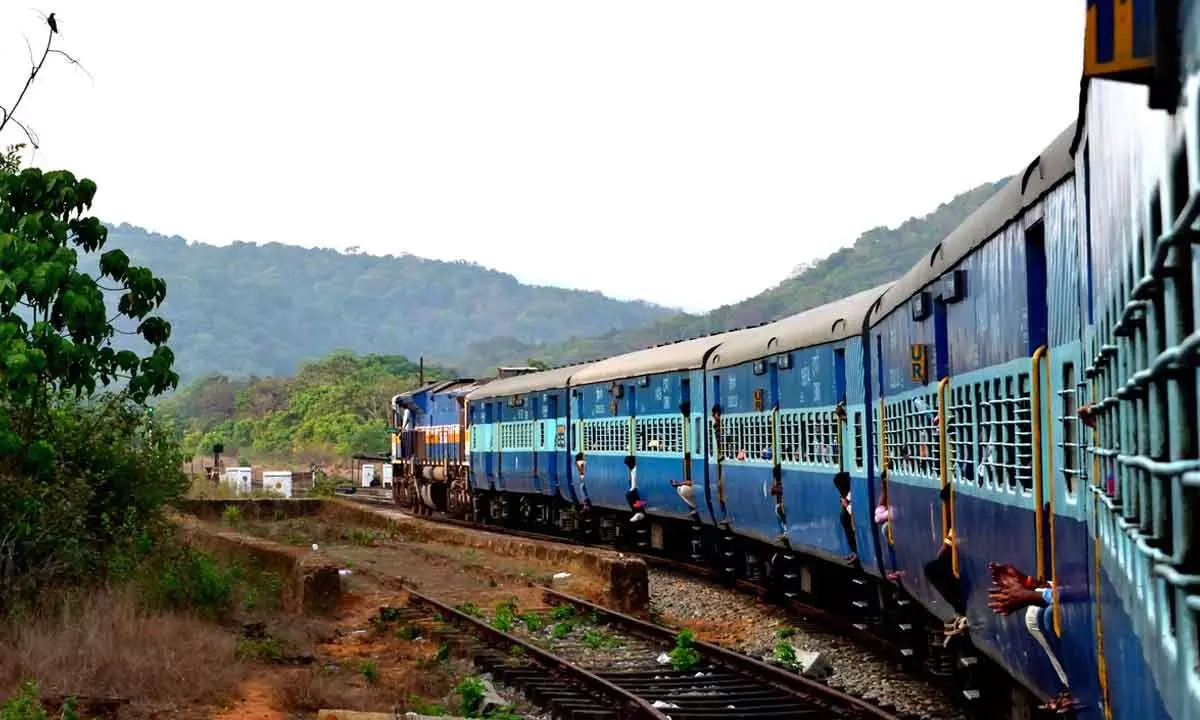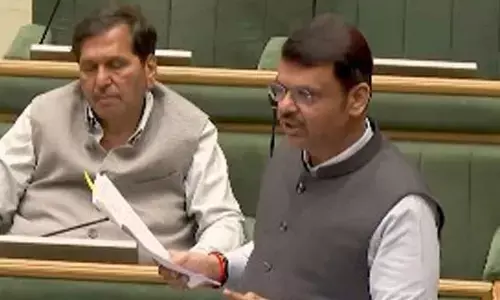Ankola-Hubballi Railway Line: A Controversial Endeavor with Ecological Ramifications

Representational image
Railways take up survey -greens furious
Ankola, a town situated along National Highway 66, has become a focal point of concern and contemplation after the state government approved the construction of the Ankola-Hubballi Railway line on March 18, 2020. This railway line, previously deemed "Environmentally and Ecologically unviable" by the Ministry of Environment and Forests (MoEF) and other regulatory agencies, has sparked heated debates due to its potential environmental disaster and marginal advantages. Now the Railways have taken up the survey
Environmental Backlash:
The decision to proceed with the Ankola-Hubballi Railway line has already resulted in resignations and disapproval from key figures. Sowmya Reddy, a member of the Karnataka State Wildlife Board and also an MLA, expressed her discontent with the project and resigned, citing the government's disregard for alternative options and the detrimental impact on wildlife diversity. The National Biodiversity Board has also voiced dissent, potentially leading to conflicts between the board and the state government. Former Union Minister for Environment and Ecology, Jairam Ramesh, has called for intervention from the then Railway Minister Piyush Goyal and Environment and Ecology Minister Prakash Javdekar to overturn the decision. Wildlife activists are now preparing to take legal action, emphasizing the dismissal of expert opinions and concerns raised by regulatory agencies, such as the National Biodiversity Board and MoEF.
Ecological Consequences:
The proposed railway line would require clearing a corridor of 400 meters across 168.5 kilometers between Ankola and Hubballi, leading to the felling of approximately 250,000 trees and the loss of 769 hectares of forests. The environmental impact extends beyond the immediate loss of trees, with severe consequences for rainwater retention, oxygen generation, habitat disruption, and fragmentation of water bodies and animal migratory routes. Wildlife biologists highlight the threat posed to the Myristica swamps, a unique and endangered ecosystem crucial for stream flow maintenance and carbon storage. Additionally, the railway track would compromise a vital corridor connecting Kaali Tiger Reserve and Bedthi Conservation Reserve, significantly impacting the movement of wildlife.
Suspected Political Motives:
Concerns have been raised about the potential political motivations behind the Ankola-Hubballi Railway line. Environmentalists in Uttara Kannada suggest that the government may have initially handed over the corridor to a lumbering company at significant cost, only to later abandon the project due to escalating expenses. This suspicion raises questions about the project's true intentions and casts doubt on its economic viability.
Inadequate Mitigation Measures:
Critics argue that the proposed mitigation measures, presented in a report by the Indian Institute of Science (IISc), are insufficient and do not effectively address the biodiversity impacts. The flimsiness and superficiality of these measures, as pointed out by environmentalists, call for a thorough scrutiny of the report. The IISc's own findings regarding the decrease in evergreen forests and habitat fragmentation in the Uttara Kannada district raise doubts about the feasibility and appropriateness of the proposed mitigation measures.
Marginal Advantages:
While proponents of the Ankola-Hubballi Railway line highlight its potential advantages, such as facilitating cargo transportation to New Mangalore Port and providing a trade and passenger route along the Western coast, local green activists emphasize that these benefits are outweighed by the extensive environmental and biodiversity losses. They stress the need to protect over 2.7 lakh trees, preserve elephant corridors, and safeguard endangered species and delicate habitats like the Western Ghats' endemic giant frog.














